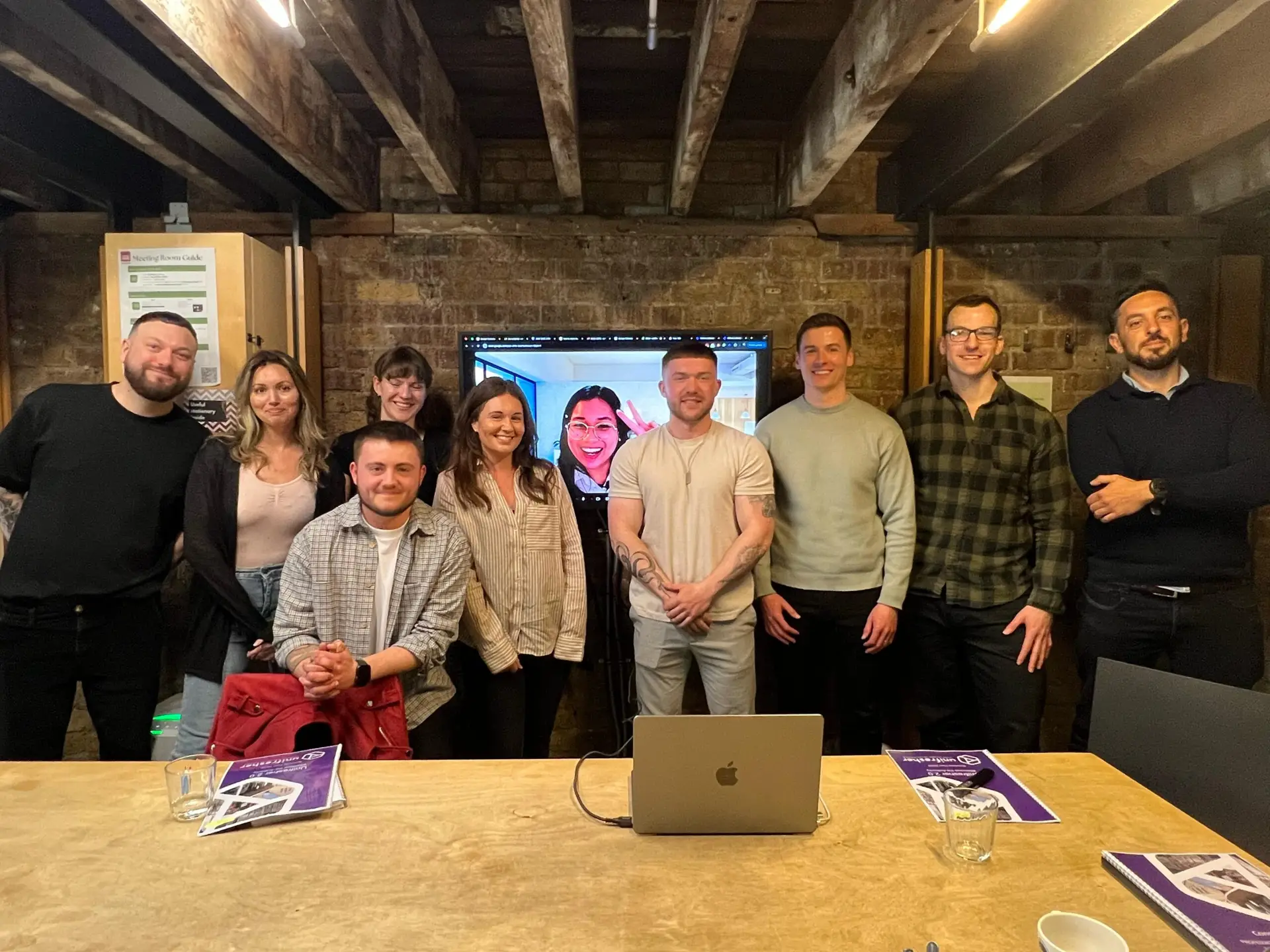
Key takeaways
- PPE degrees cover philosophy, politics, and economics equally
- Graduates go into law, politics, business
- Interdisciplinary approach broadens knowledge
Philosophy, politics and economics (PPE) is considered to be one of the most prestigious degrees out there. It was first taught at Oxford in the 1920s and has a significant list of graduates including various prime ministers, leaders of opposition and more. The course has now expanded to many universities across the UK and the world, so you don’t need to go to Oxford to get the PPE experience. But, it is a great option if you want to study a variety of disciplines in the field of social sciences, but don’t want to pick just one. So, is philosophy, politics and economics a good degree? Let’s find out.
What is a PPE degree?
So, to start with a simple but important question, what is PPE? Well, unsurprisingly, PPE, or Philosophy, Politics and Economics, is a joint honours degree involving the study of those three disciplines. The combination of the three subject areas allows you to be very flexible with what courses you take. Here’s a basic overview:
Philosophy
The philosophy component of a PPE degree is essential in fostering a student’s ability to think critically and analyse complex concepts. It involves a deep dive into the realms of critical thinking and logical analysis, where students learn to construct and deconstruct arguments and approach problems systematically. This segment also delves into ethical and metaphysical inquiry, exploring moral philosophy and tackling complex questions about existence, knowledge, and reality. A significant emphasis is placed on understanding the evolution of philosophical thought, tracing ideas from ancient philosophers to modern thinkers. Additionally, philosophy in PPE is not just theoretical; it often involves applying philosophical principles to current societal and ethical dilemmas, encouraging students to think about how these ideas shape the modern world.
Politics
The politics component of PPE is geared towards imparting a comprehensive understanding of governance and public policy. It encompasses the study of different political systems and ideologies, providing insight into their historical context and modern-day applications. A key focus is on the workings of governments, the policy-making process, and the role of various institutions in shaping public policy. The curriculum also covers international relations, examining the dynamics between nations, including diplomacy, international conflicts, and global cooperation. Contemporary political issues are a crucial part of the study, where students are taught to analyse and understand these developments through the lens of political theories and systems.
Economics
Economics in the PPE program offers an in-depth understanding of how economies operate and the impact of policies. The curriculum covers the fundamentals of both microeconomics, which focuses on individual and business decisions, and macroeconomics, which deals with economic activity and policy on a national and global scale. Students explore various economic theories and models, gaining insights into different approaches to economic analysis and policy-making. A significant aspect of the economics segment is the study of economic policy, including how government decisions impact the economy, with topics like taxation, monetary policy, and welfare economics. The program emphasises the application of theoretical knowledge to real-world economic issues, such as poverty, inequality, and economic development.
Generally, PPE courses will involve modules in macroeconomics, international relations, law, ethics and political theory. But, you can pick and choose which modules you want to take based on your interests. Depending on your university, you could take additional supplementary modules like languages if you choose.
How does PPE compare with a singular degree?

There are lots of different ways in which doing a combined degree such as a PPE can be better or more challenging than a singular degrees in philosophy, politics or economics. For example, the depth of knowledge differs, where you might get a deeper, more specialised understanding of their respective fields in single-discipline degrees. In contrast, PPE focuses on breadth of knowledge as opposed to depth (so you’ll know more about different things but perhaps in less fully).
In PPE, you’ll also develop lots of different skills. These might include critical thinking, interdisciplinary analysis, and the ability to understand complex societal issues from multiple perspectives. These skills are highly adaptable but may not offer the technical depth of single-discipline degrees. However, in terms of a career or next steps, you’ll still likely be able to apply for similar job roles to those you’d apply for with a singular degree.
In terms of careers, PPE graduates typically have a wide variety of options to choose from. See more below on potential career paths with a PPE degree. These can include policy international relations, and social entrepreneurship. You’ll probably be able to do these with a politics or economics degree, but less so with a philosophy degree alone. Philosophy is still a useful degree though, where you can get into a range of interesting careers with a philosophy degree.
Read more about what it’s like to study politics in our guide to this singular degree.
What skills can you get from PPE?

Thanks to studying a variety of courses in a variety of departments, a PPE degree can give you several different, useful skills. In a general sense, a degree in philosophy, politics and economics can help to develop analytical skills that can be applied to a wide range of areas, as well as teaching writing, logical reasoning and problem-solving. Additionally, you’ll gain skills relative to each area of the degree. For instance, the economics side of things will improve your maths skills.
But, there are others too, which are slightly less relevant to actual study. Philosophy, politics and economics will likely all be in different departments from one another, which means that communication between them may be… a little difficult sometimes. Therefore, you develop really strong organisational skills. The only correlation between the departments is going to be you as the student, so you have to become self-reliant. This is the case for anyone studying joint honours really. The different departments will likely have slightly different rules for referencing, submission, formatting, and that sort of thing. So, another skill you’ll develop is adaptability.
Potential career paths from a PPE degree
A degree in philosophy, politics and economics can set you up for many career paths, but one stands out: politics. Many prime ministers/presidents and opposition leaders of several countries have studied this degree. This includes David Cameron, Liz Truss and Rishi Sunak, Ed Milliband and Michael Foot, all from the UK, as well as former Australian Prime Ministers Malcolm Fraser, Bob Hawke and Tony Abbott, and more. So, is philosophy, politics and economics a good degree if you want to go into politics? Absolutely.
But, if that’s not for you, there are plenty of other career paths. If you’re looking for something strictly related to the degree, then there are jobs like political consultants, bankers, accountants and financial/political analysts. However, if you want to take what you’ve learned from PPE and apply it to something else, then you could go into law, business, journalism, teaching, and more. Basically, with a PPE degree, you can go into a lot of career paths.
Are there downsides?
As with any degree program, there are downsides. First off, you won’t have as much choice at A-Levels/sixth form/college, whichever is applicable for you. While Oxford does not have any required subjects for PPE, they advise taking maths and history. If you look at other Russell Group universities such as York or Edinburgh, they require maths. So, you need to be very committed to PPE as your choice of degree from GCSEs.
Additionally, taking a degree in multiple subject areas may mean that you feel you’re “behind” people who just study one of the disciplines. But, that’s a very simple fix. Going to office hours and talking to your professors will seriously help, trust me. They’re here to help you. If there’s something that you’re struggling with, professors will know how to help.
Which universities in the UK are the best for PPE?

Several universities offer PPE at undergraduate or postgraduate level. Arguably the best is the prestigious University of Oxford, which is obviously world-famous for being a top uni generally. If you gain a PPE degree from there, you’ll likely be good to get any job you want afterwards. The University of Oxford was also the birthplace for PPE, introduced in the 1920s. It emerged as a modern alternative to the classical studies of “literae humaniores” or “greats,” traditionally pursued by those entering the civil service. Initially dubbed “modern greats,” the course aimed to provide a more contemporary education relevant to modern society. Originally, students were required to study all three disciplines throughout the three-year course. However, in 1970, this requirement was relaxed, allowing students to drop one subject after the first year. While most students choose to specialise in two subjects from the second year, a minority continue with all three.
But you don’t have to go to the prestigious Oxford University to study PPE, with a whole range of other unis offering the course too. The list below are some of the best UK universities for studying PPE.
- The University of Oxford
- The University of Manchester
- The University of Sussex
- The University of York
- London School of Economics and Political Science
- University of Warwick
- Lancaster University
- Utrecht University
- SOAS University of London
- University of Stirling
- University of Birmingham
- University of Hull
- The University of Edinburgh (Masters)
- King’s College London
- Loughborough University
If you’re considering a singular degree, then it’s worth checking out these top universities for politics in the UK, or these great unis for economics.
Is PPE a good degree?
So, to answer the question, is philosophy, politics and economics a good degree? Well, that depends on each person. Yes, PPE can give you the skills to set you up for a well-paying job, but “good” is a completely subjective term. What’s good for one person may be completely different for another. So, it’s up to you to decide. But, thinking about it from a job’s perspective, yes, I would say that PPE is a good degree.
Sociology is another subject in the same sort of area as PPE. If that’s something that you’re considering, check out this article to find out what you can do with a sociology degree.

Topic expertise: University & Degree choice, Applications, Travel and Student life
FAQs on PPE Degrees in the UK
A PPE degree combines philosophy, politics, and economics into a single programme. It offers students an interdisciplinary education, covering moral reasoning, political theory, economic systems, and policy analysis. This broad scope builds analytical and problem-solving skills across multiple disciplines.
PPE graduates go on to careers in politics, law, journalism, finance, consulting, public policy, education, and more. Many become civil servants, economists, political advisors, or media professionals. The degree’s versatility also suits roles in international development, think tanks, and business strategy.
Yes, PPE is regarded as a prestigious degree, especially due to its association with Oxford University, where it originated. Today, it’s offered at leading UK institutions such as LSE, Warwick, Manchester, York, Birmingham, and King’s College London, among others.
Advantages include exposure to a wide range of ideas, flexible career options, and development of strong transferable skills. Challenges can involve balancing the workload across three departments and sometimes a lack of deep specialisation, but the course fosters adaptability and critical thinking.
PPE offers broader academic coverage and a more varied skillset, while single-subject degrees allow for deeper focus in one area. PPE suits students who want to understand how different disciplines intersect and is ideal for careers that demand a multidisciplinary approach.
Authors
-
Aminah is a dedicated content expert and writer at Unifresher, bringing a unique blend of creativity and precision to her work. Her passion for crafting engaging content is complemented by a love for travelling, cooking, and exploring languages. With years spent living in cultural hubs like Barcelona, Sicily, and Rome, Aminah has gained a wealth of experiences that enrich her perspective. Now based back in her hometown of Manchester, she continues to immerse herself in the city's vibrant atmosphere. An enthusiastic Manchester United supporter, Aminah also enjoys delving into psychology and true crime in her spare time.
View all posts





